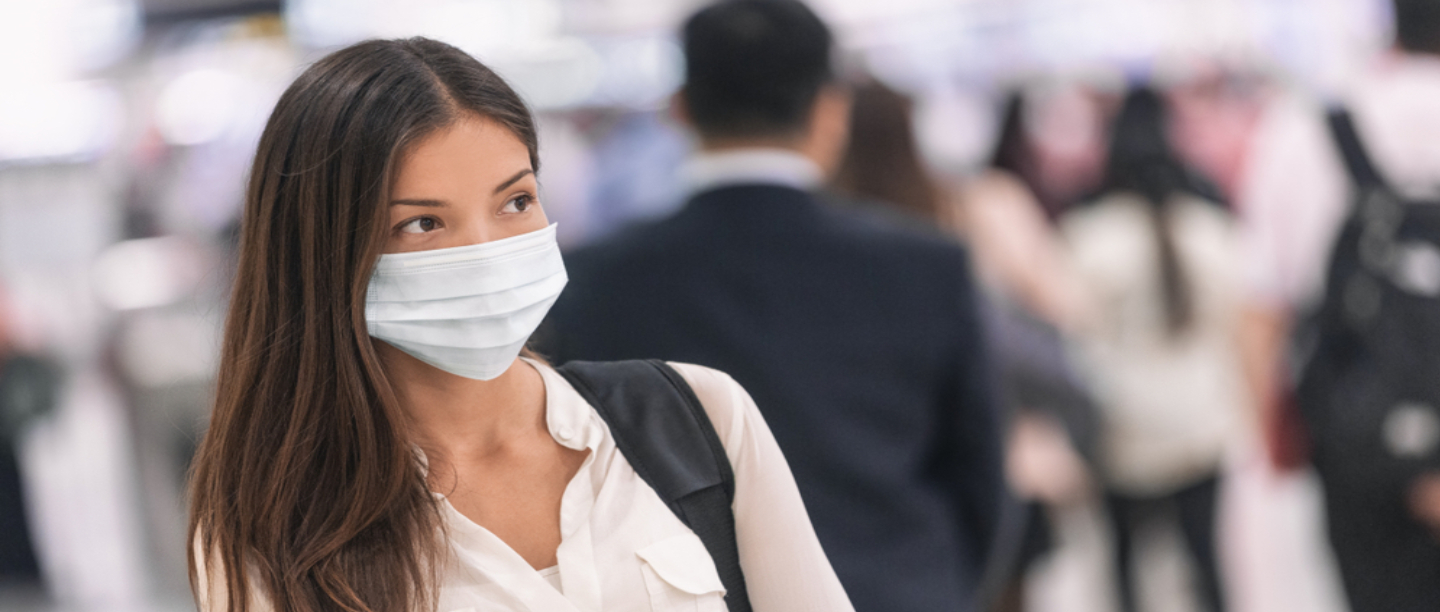
India has entered Stage 3 (community transmission) of the global coronavirus pandemic, and positive cases are spiking at a very steep rate every day. To control the spread of the virus, the government implemented a nationwide lockdown starting March 25. While the lockdown was to be lifted on April 14, with the rapid increase in the number of cases, it is likely that the government will extend it.
Staying indoors is extremely important right now, however, you do need to step out every few days to stock up on essentials. The idea of going outdoors itself can seem anxiety-inducing, but if you take the right precautions you can minimise your risk of contracting the virus.
Protective face masks have been a topic of debate ever since the virus broke out. While medical professionals earlier stated that masks can do very little to protect you and should only be used if you are caring for a COVID-19 patient, now they are being deemed as important protective wear. Yesterday, state governments of Delhi, Mumbai and Uttar Pradesh made it compulsory for people to wear masks before stepping outdoors, violation of which could lead to arrest.
So how exactly do masks protect us and why are they important? We’ve answered your most frequently asked questions.
Why Is Wearing A Mask Important?
It is important to wear a cloth mask when you step out in public because not only do they prevent you from catching the virus from an infected person, it also prevents an asymptomatic (producing or showing no symptoms) positive case from spreading it to other people. So the mask is meant to protect you, as well as protect other people from you, in case you have caught the virus but haven’t been tested yet. Thus, wearing a cloth mask will greatly help in curbing community transmission.
Also Read: Wearing Gloves To Protect Yourself ? A Nurse Explains How You Might Be Doing It Wrong
When Should You Wear A Mask?
According to the United States’ Center For Disease Control (CDC), you should wear a mask when stepping out in public, particularly while in “settings where other social distancing measures are difficult to maintain (e.g., grocery stores and pharmacies)” and “especially in areas of significant community-based transmission.”
This applies to situations when it is hard for you to maintain a distance of the recommended one-metre from other people, especially in closed, poorly ventilated places. This is because coronavirus-containing droplets are more likely to spread by air or surfaces in such scenarios.
However, the CDC also noted an important exception: “Cloth face coverings should not be placed on young children under the age of two, anyone who has trouble breathing, or is unconscious, incapacitated or otherwise unable to remove the mask without assistance.”
What Kind Of Mask Should You Wear?
Shutterstock
There’s a variety of protective face masks online and available in the market–surgical, N95, N99, and regular cloth masks. But which one is right for you? According to medical experts, you don’t need a specialised mask to protect yourself. Any cloth mask or face covering, whether a professionally made mask or a homemade variant, will do the trick.
It is very important to note that surgical masks and N95/99 respirators are critical supplies and must be reserved for healthcare workers and other medical workers, as a shortage of such masks will put the people working round the clock to save our lives at risk.
Will Wearing A Mask Ensure I Don’t Contract COVID-19?
Again, it is important to note that the most important function of the mask is to prevent other people from getting infected if you’re an asymptomatic carrier of the virus. Masks can also offer some protection from others because they put a physical barrier between infected people and your mouth and nose, which is where the virus can enter your body from. Moreover, wearing a mask will stop you from constantly touching your face, which is crucial in case your hands came in contact with a contaminated surface.
However, experts continue to reiterate the most important medical advice when it comes to protecting yourself–wash your hands thoroughly, and wash them several times a day. If you don’t have access to soap and water, use a sanitizer with over 60% alcohol content.
Also Read: If Not Self-Isolated, One COVID-19 Patient Can Infect 406 Others In 30 Days, Says A Study
How Can I Make My Own Mask?
Since you don’t need a speciality medical-grade mask, you can make a DIY mask to protect yourself that will be just as effective. The most important things to keep in mind are that your mask should fit snugly but comfortably around the face, be secured around the ears with ties or loops, include multiple layers of fabric, allow for breathing without restriction and is washable without damage.
If you know how to sew, the CDC recommends a face covering that can be made with two 10-inch by 6-inch rectangles of cotton fabric, two 6-inch pieces of elastic or rubber bands, string, cloth strips, or hair ties, a needle and thread or bobby pin, scissors, and a sewing machine.
If you’re like me and don’t know how to sew, follow one of these easy tutorials to make DIY protective masks at home.
So now that you know everything about masks, from making your own to the importance of wearing one–we hope that you will wear one before you step out of your homes. However, please don’t hoard on medical-grade masks meant for our healthcare workers.
And remember, wearing a mask will not make you invincible–you still need to wash your hands, avoid touching your face and practice social distancing.
Featured Image: Shutterstock
Learn a whole new set of skills without stepping out of your home. Join our talented set of hosts on #POPxoLive and you’re all set. Download the POPxo App and get ready to take it up a pop!